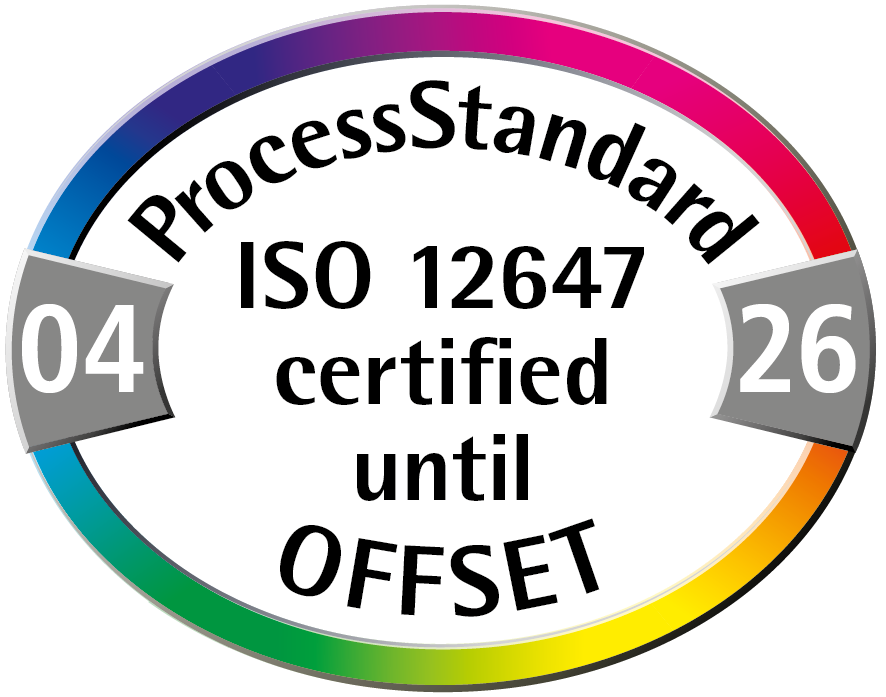Text: Jaroslav Drahoš
First of all, thank you very much for your questions. As we have now received more questions about the company’s strategy and the future of FINIDR, I have focused primarily on these topics. What about your questions that were not answered in the current issue or you haven’t managed to sent me yours yet? Write to redakce@finidr.cz and I will try to answer your questions in the next issues of Finidrak.
Why should every company have a mission statement and what is it?
I’ll try to explain it to you as much as possible. The basic mission of any organizati on, and therefore of course our printing company, is to provide a service to its customers or to sell its products to them. It is logical that if a company
does something that customers are not interested in, it cannot make a profit, cannot develop and must sooner or later disappear. The mission statement is therefore a clear statement of why we are here and why FINIDR exists in the first place. I am glad that with the new strategy we have managed to name very precisely why we are here. It is also a justification and explanation of why I wanted to be there when the printing house was founded. This mission statement also clearly defines within our company what is important to us. The mission statement is also absolutely essential for companies that produce or supply products or services that are in demand. If there is a lot of competition in the marketplace, the customer can choose who will supply the service or product. The customer will always choose as their supplier the company that better adresses them, offers better service, is responsive, perceives their needs and can be relied upon at all times.
So what is our mission?
Our mission resonates above all with one key word: “HELPING”. This word expresses why FINIDR is here. It is the word that encapsulates most of what makes FINIDR to FINIDR. We are not a classic “factory”, we do not have a product. We help our customers’ ideas materialize. We provide them with a service that should always include in its sum what the customer expects. Or rather, it will always be much better if we always bear in mind that the customer should always get a little more than they expect. Equally important for me is a clear message inside our printi ng company. We help people grow and build a fair atmosphere. This area is not only about our internal environment, but certainly also of interest to all our partners. For them, this mission of ours is as important as the actual producti on of the books. Ethics, a proactive environment, clear rules for everyone, systematic development of people, opportunities for growth in a fair atmosphere are areas that are important to us and are part of our DNA. They are also important and key factors in the success of our printing company.
What does this mean for you personally?
For me, this is a huge relief and also an incredible shift ahead. I’ll try to explain it right away. Those who know me know that the naming our mission does not and will not change anything fundamental in FINIDR. Values, attitude, fairness and building a positive atmosphere in the company have always been and will always be a priority for me. Just as ethics in business is also extremely important to me. We don’t take bribes, we don’t give bribes, every contract is hard fought. If we have ever worked for the public sector, it has always been on the basis of a competition that we won because of our competitive prices and high quality. But what has fundamentally changed for me is that for the first time and in a coherent way we have managed to define, anchor and grasp our mission in a way that not only I will be able to better explain my values, ideas and priorities, but also I believe that all Finidras will now know why FINIDR is here and what the purpose of its existence is. Why FINIDR is successful and what is necessary to do to make it successful in the coming period.

And what does that mean for each and every one of us?
How does a person who lives the mission of FINIDR in everyday practice behave? Let’s not look for anything complicated in the strategy. Rather, on the contrary, if I always check whether or not what I am doing is in accordance with the strategy, then if there is any doubt, I will proactively take an action myself and discuss it with my supervisor. That is why I am glad that we have managed to define the strategy so clearly and concisely. “HELPING” cannot be explained in any other way than that I work in a team, I work for a team and I care about the team. I look for ways to improve and do my job better to make both external and internal customers happy. I am committed, and above all, I am not indifferent. If I can improve something or help someone else or somewhere else, I will do it and I don’t look for reasons how it can’t be done.
Our mission:
Helping
• to books to the world
• people to grow
• to building a fair atmosphere
Three basic rules have long been and will continue to be valid in our company:
• you can’t x we can help you
• you don’t know how x we can teach you
• you don’t want x we don’t need you
Of course, the atmosphere in which we move and work is equally important. A positive and fair atmosphere is motivating, inspiring and healthy. The work has to make sense, I have to understand what I’m doing and why I’m doing it, and I have to enjoy it at least a little. Then what I do is meaningful not only for the people around me, but also for me.
Is it realistic to reach 500 million books in 2025 according to the communicated strategy?
Of course it is realistic. We have always set ourselves challenging but achievable targets. This target is also very ambitious. It will not be easy and it will not come by itself. That’s why we have our strategy, which breaks down into monthly, quarterly and annual targets. Meeting this goal will not come by itself and it will not come overnight. It is a patient and systematic work of each of us based on personal goals, personal development, finding ways to do what we do better, faster and more efficiently.
If you look at these charts, you will understand that it is not impossible, on the contrary, I am convinced that unless something crazy happens in the world or in Europe, we have a lot of trump cards in our hands to achieve our goal together again. At the same time, I think it is extremely important to repeat that achieving this goal gives the assumption that we will also maintain an environment at FINIDR that allows us to continue to invest in new technologies and motivate people in a way that makes sense to them.
How long do we want to produce in FINIDR “B”? What are the plans for the future?
I dare to say that we will be producing in the FINIDR “B” building for at least another 5 years. I was pleasantly surprised and at the same time I really appreciate the attitude of the employees who work in FINIDR “B”. There is no doubt that due to logistics and existing premises, production in FINIDR “B” is more complex, complicated and therefore often more demanding. Nevertheless, I am very pleased to say that this does not affect the quality or efficiency of production at all. Hats off and of course thanks to all the employees from both “A” and “B” who are involved and are the engine of success.
At the same time, I can imagine that if a new hall were to be built in the following period, production would probably remain there in some form. However, this is not at all on the agenda at the moment. Our main aim is to implement steps and improvements that will enable us to cope with this year’s Christmas market demand.
Will there be a wage increase (due to inflation) in FINIDR in 2023?
This is certainly a very hot topic at this time. The current inflation rate is really high, we experienced a similar situation in the late 90s. The rise in the price of energy and then other commodities, including food, is a very negative phenomenon. The greatest rice increases are taking place, in particular, where prices are influenced by multinational monopolies or large market players. Energy and food are exactly the areas that the state should have control over. The state has the tools to ensure that the environment is not subject to such abuses, as we saw last year and this year. It is not only the current government, but also previous governments that have created conditions that do not regulate these prices and therefore do harm to the people of our country.
But there is no monopoly in our book manufacturing business. There are no cartels; on the contrary, thanks to nonsensical subsidies, the market is very distorted. Prices for books are regulated by
the market. Therefore, we are not able to pass on any increase in the price of materials, but also of other inputs, to the final price, and thus cover the increased costs of electricity, wages or materials. At the moment, there is a crisis in this country, but also in Europe as a whole, and demand is significantly lower. However, this does not only affect our industry, but virtually all segments and production areas.
My answer to the question whether there will be a wage increase even in this difficult situation this year is “Yes”. Yes we will, we will increase wages during March and April. It will not be across the board, because we have different incentive schemes set up in the various departments, divisions and machines themselves. These are specifically determined for each machine, each department or each position so that they are meaningful and understandable for everyone.
At the same time, I would like to remind you that at most workplaces, where it is set, there is a regular and automatic increase in the basic component of the wage, according to the established performance and quality of work. Moreover, there is a variable wage component, which is based on the performance. The amount of both components is part of the motivation and thus is entirely in your hands.
Just as individual motivation is set, so motivation is also set on the overall results of the company. Last year we paid larger bonuses than in 2021. The amount of these bonuses is based on the company’s performance and I will be happy if we can
pay similar or larger bonuses this year. However, I say up front that it is not possible to count on wage increases that would fully cover the rate of inflation. It is not realistic. If we were to do that and reflect that increase in the price of the product, we would not get any contracts. If we increase wages now, we have to look for ways to improve. We have to find activities elsewhere where we can be more efficient or where we can reduce costs.
It is certainly not and will not be easy. It hasn’t been easy in the past either, but we have been doing it for 29 years. I believe, and we are doing everything to make it happen, that we will do just as well this year and in the years to come.
If you would like to ask Mr. Drahoš some questions, please send them to the email: redakce@finidr.cz






